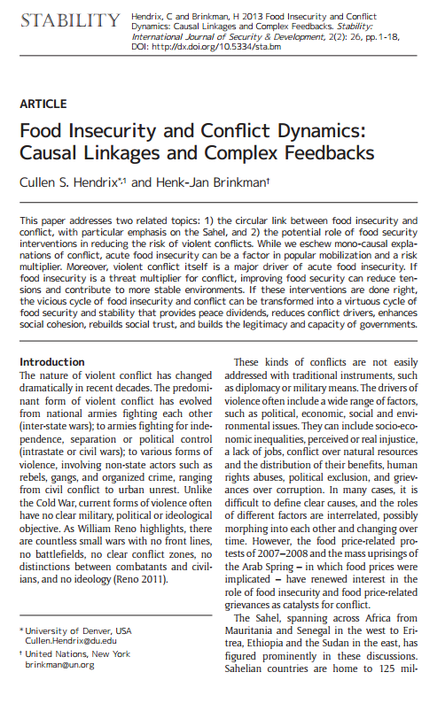
This paper addresses two related topics: 1) the circular link between food insecurity and conflict, with particular emphasis on the Sahel, and 2) the potential role of food security interventions in reducing the risk of violent conflicts. While we eschew mono-causal explanations of conflict, acute food insecurity can be a factor in popular mobilization and a risk multiplier. Moreover, violent conflict itself is a major driver of acute food insecurity. If food insecurity is a threat multiplier for conflict, improving food security can reduce tensions and contribute to more stable environments. If these interventions are done right, the vicious cycle of food insecurity and conflict can be transformed into a virtuous cycle of food security and stability that provides peace dividends, reduces conflict drivers, enhances social cohesion, rebuilds social trust, and builds the legitimacy and capacity of governments.
Resource collections
- Sudan humanitarian response
- UN Habitat - Urban Response Collection
- Urban Response - Urban Crisis Preparedness and Risk Reduction
- Urban Response Collection - Community Engagement and Social Cohesion
- Urban Response Collection - Economic Recovery
- Urban Response Collection - Environment and Climate Change
- Urban Response Collection - Housing, Land and Property
- Urban Response Collection - Urban Crisis Response, Recovery and Reconstruction
- Urban Response Collection - Urban Resilience